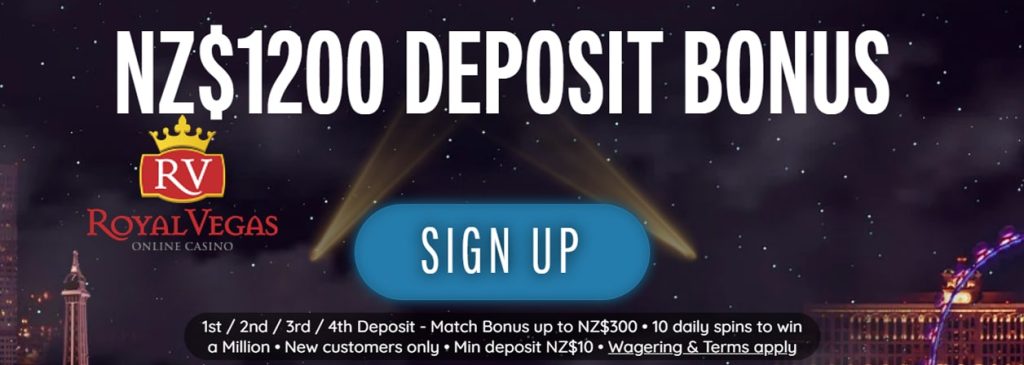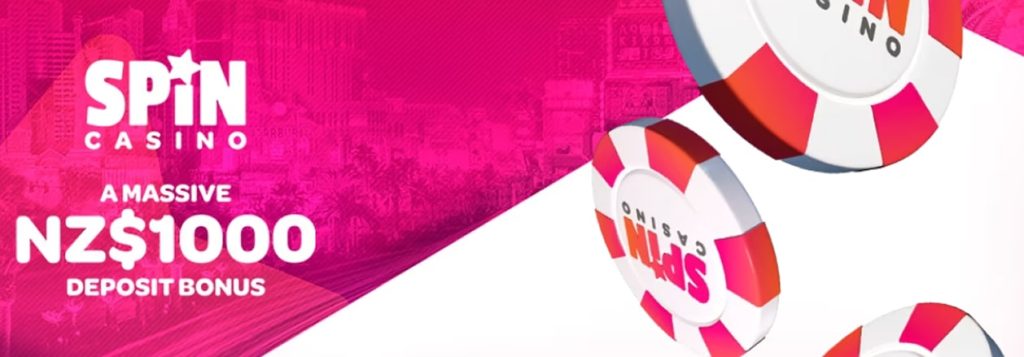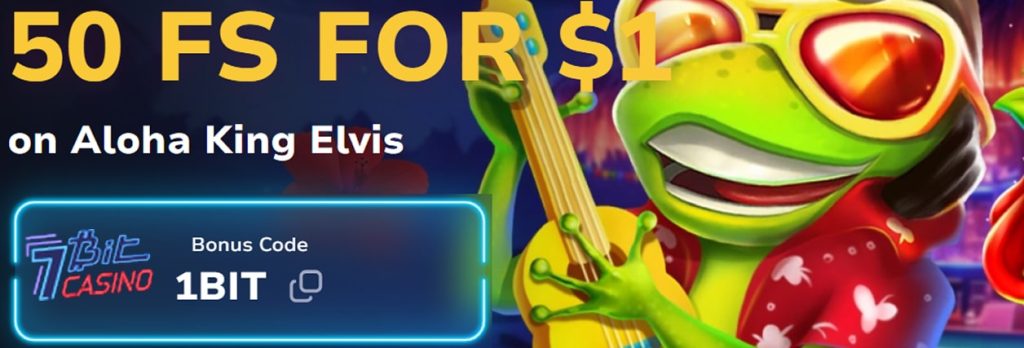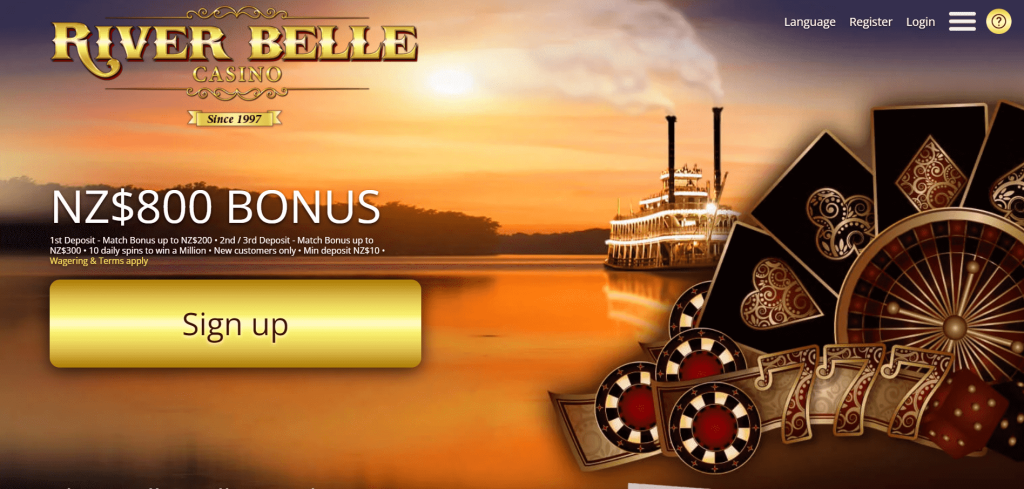The deposit $1 get $20 NZ bonus offers have definitely caught the eye of casino players in New Zealand. At first glance, they seem like an obvious win: you put down a single dollar, and suddenly you have twenty to play with. It feels like a risk-free way to try out online gambling-almost impossible to ignore. However, from the banks’ perspective, things aren’t quite so straightforward. These small deposits-just a dollar at a time-actually trigger a whole series of international money transfers. Funds cross borders, get exchanged into different currencies, and activate multiple fraud detection processes.
The banks-ANZ, ASB, BNZ, Westpac, Kiwibank-have to handle these $1 payments to places like Zodiac Casino or Luxury Casino with the same diligence as much larger transactions. They perform the same verification checks, watch for suspicious behavior, and adhere to strict anti-money laundering and counter-terrorism regulations, even though the amounts are minor. So, when you take a closer look at how these $1-for-$20 casino promotions actually function, you notice the intricate systems working behind the scenes. What appears to be a simple marketing offer actually relies on highly advanced banking operations. That’s why even these tiny deposits attract significant attention from banks and regulators-they’re always vigilant for anything that could compromise consumer safety or enable fraud and financial crime.


















How the Deposit $1 Get $20 Works
The “deposit $1 get $20 NZ” bonus offer is a favorite at New Zealand online casinos, but the name can be a bit misleading. You’ll see “deposit” and “no deposit” mentioned together, but here’s what actually happens: you make a tiny deposit-just $1-and the casino gives you a $20 bonus. The catch? The bonus isn’t just free cash. It comes with a set of rules. For casinos, this type of offer makes a lot of sense. It’s an easy way to bring in new casino players.
With a $1 minimum, almost anyone can give it a try, and it also lets the casino check that you’re able to make a payment. Plus, letting people play with bonus funds instead of their own money helps them get comfortable. From a player’s perspective, the process is straightforward. You register at a casino offering the deal, go to the deposit page, choose your payment method (most Kiwis use Visa, Mastercard, or POLi), deposit $1, and complete the transaction. Once the payment is processed-usually instantly-you’ll see $21 in your account: the $1 you deposited and the $20 bonus.
Only your $1 is available for withdrawal right away, though. The bonus comes with restrictions. This is where things can get complicated. The $20 bonus has terms attached. You’ll have to meet wagering requirements-meaning you need to bet 30 to 60 times the bonus, depending on the casino. For a $20 bonus with a 40x playthrough, that means making $800 in bets before you can withdraw any winnings from the bonus. And there’s more. The bonus money usually only applies to select slot games, not table games like blackjack or roulette, where your chances are better. There’s also a limit on how much you can bet at once-typically $5 to $10 per spin-so you can’t just speed through the requirements. Even if you hit a big win, casinos often cap how much you can actually cash out from these bonuses, sometimes at $100.
Before you can withdraw anything, you’ll need to submit documents to confirm your identity. From the bank’s perspective, these $1 deposits look just like any other gambling transaction. They’re processed the same way as a $100 deposit, using identical codes and checks. The issue is, banks spend about the same amount of resources on a $1 payment as they do on a larger one, but the fees they earn might not cover the costs. Processing, fraud screening, chargebacks, compliance-it all takes time, and all for a small deposit.
There’s another side to these offers as well. Some people-known as bonus hunters-sign up at many different casinos just to claim the $1 deals, with no intention of staying. Banks sometimes spot these patterns: customers making lots of small gambling deposits to various places in a short time. Even if this isn’t technically against the rules, it can trigger fraud alerts and cause banks to take a closer look. So there’s always a push and pull-casinos want new players, banks want to keep things in order, and some players just want to take advantage for a quick profit.
The Truth About $1 Casino Deposits
Let’s break down those deposit $1 get $20 NZ casino offers. At first glance, they seem like a cheap way to test your luck, but once you look at how the money actually moves-especially with all the banks and payment services involved-it gets a lot more complex. Processing fees don’t care if you’re moving a single dollar or a thousand.
Every NZ$1 deposit still gets hit with several charges before it reaches the casino. If you use Visa or Mastercard, you’re paying card network fees (usually 1.5-2.5% for international transactions, with minimums of about NZ$0.25-0.50), payment processor fees (again, with minimums), currency conversion spreads (typically 1.5-3% above the interbank rate if you’re not using NZD), and extra bank charges for international payments (often 1.75-3%, also with minimums). Add all these together, and sometimes the total fees can swallow the entire deposit-sometimes even more. A player might pay NZ$1.45 for a NZ$1 deposit, or the casino might only get NZ$0.70 after everyone takes their cut. It’s not a viable business model unless casinos expect to earn back the difference through bonuses or player losses.
The payment method matters a lot. Visa and Mastercard dominate the micro-deposit scene, handling about three-quarters of these minimum deposit $1 get $20 nz real money no deposit deals. People use them out of habit, but these cards have the highest fees and cause the most issues for banks. Small gambling deposits often trigger fraud alerts-banks worry that criminals are testing stolen cards with tiny transactions before attempting bigger thefts. POLi, a local payment option, handles around 15% of these small deposits. It’s free for users, works instantly, and gives banks a clear audit trail, but not all overseas casinos use POLi because of technical challenges.
E-wallets like Skrill and Neteller make up about 8%. They add extra steps-move money into the wallet, then from the wallet to the casino-but they let people keep top paying online casino NZ payments off their main bank statements. The last 2% is a mix of prepaid vouchers and crypto, but these aren’t common for $1 deals because of transaction minimums and technical complications. Fraud detection is a real challenge with micro-deposits. Most fraud systems focus on big, suspicious transactions, assuming that criminals want to steal as much as possible in one go.
But these $1 deposit deals reverse that logic. Now, criminals can test stolen cards with small transactions, exploit bonuses with fake accounts, or even launder money by slipping small amounts under the radar. Banks in New Zealand have caught on-they use behavioral analysis instead of just monitoring amounts. They look at patterns, timing, the number of different merchants, and other account activity. For example, ANZ’s fraud team will flag anyone making $1 deposits at more than five gambling sites in a single day. Even if each transaction looks harmless on its own, the pattern triggers alerts. That’s just not how regular players operate.
Casinos Offering Deposit $1 get $20 Deals in New Zealand
Several well-known casinos target New Zealand players with deposit $1 get $20 NZ offers, but each one operates a bit differently. Their terms, payment options, and how your bank processes the transaction can vary a lot.
| Casino | Deposit Requirement | Bonus Offered | Payment Methods Accepted | Banking Interaction | Licensing | Verification Requirements |
|---|---|---|---|---|---|---|
| Zodiac Casino | NZ$1 | 80 chances to win (≈$20 value) | Visa, Mastercard | 3D Secure required, AML monitoring | MGA (Malta) | Email initially, full KYC for withdrawals |
| Kiwi Treasure | NZ$1 | $20 in free spins | POLi, Visa, Mastercard | Instant via POLi through ANZ/Kiwibank | Curacao | Optional until $1000 cumulative withdrawals |
| Luxury Casino | NZ$1 | $20 match bonus + additional offers | Credit/Debit cards, Instadebit | Account verification required before withdrawal | Kahnawake | Full KYC mandatory |
| Lucky Nugget | NZ$1 | $20 playable balance | Skrill, Neteller, Visa, Mastercard | Manual review for e-wallet transfers | MGA (Malta) | Progressive verification based on activity |
- Take Zodiac Casino as an example. Their $1 deposit offer is everywhere, but if you look closely, it’s actually “80 chances to win on Mega Moolah,” not a straightforward NZ$20 cash bonus. That’s important-since the bonus isn’t cash you can withdraw right away, it stays locked in the casino until you meet their requirements. Zodiac is licensed by the Malta Gaming Authority, which provides solid regulatory oversight. For New Zealand players, making a deposit isn’t as simple as entering your card details; you have to use 3D Secure, which means confirming the deposit through your bank app (like ANZ goMoney or ASB Mobile) with your fingerprint or PIN. It adds a couple of steps, but it really helps prevent fraud. From your bank’s perspective, these payments show up as transactions to a long-established, Malta-licensed business-not a random offshore company-so you’re less likely to have issues or get your deposit flagged.
- Kiwi Treasure does things its own way. They make deposits easy for New Zealanders by using POLi as the main option for their $1 deposit deals. POLi processes payments as if they’re local NZ bank transfers, so deposits are usually fast-often just a few minutes-and your bank is less likely to flag them. This works especially well for Kiwibank and ANZ customers. The trade-off? Kiwi Treasure has a Curacao license, which, while legal, isn’t as strict as Malta or UK authorities. Banks may notice that and take a closer look, especially when you try to withdraw. Kiwi Treasure also lets you skip full verification until you’ve withdrawn over NZ$1,000 in total, which is convenient for players but leaves it up to the banks to check customers.
- Luxury Casino takes a more traditional approach. They require full Know Your Customer (KYC) documents-ID, proof of address, and everything else-before you can withdraw, even if you only deposited $1 to get the promo. It’s more effort up front, and you’ll probably have to wait a day or two for their staff to review your documents, but banks like it. When you cash out, your bank receives a payment with all the verification done, so there are fewer questions and compliance problems. Luxury Casino holds a license from the Kahnawake Gaming Commission in Canada, which is stricter than Curacao but not quite as tough as Malta.
- Lucky Nugget is more flexible. For their $1 deposit offer, you just need to verify your email. When you make your first withdrawal, they might only check your email and payment method. But if you start winning large amounts or withdraw often, they’ll ask for full KYC documents. This step-by-step process keeps things quick and easy for casual players, but ramps up checks for bigger winners. Depending on your stage, your bank may see payments with full verification or just the basics. Lucky Nugget also holds a Malta Gaming Authority license, so banks tend to view them as lower risk, similar to Zodiac Casino.
These $1 deposit deals may look the same, but the details-how you pay, how you’re verified, and how your bank treats the transaction-can make a real difference for New Zealand players. All four casinos hold valid licenses from reputable gambling authorities. Even Curacao and Kahnawake, while not enforcing the toughest standards, provide more oversight than unlicensed operators. Having a license can ease some of the concerns banks have about processing payments for these casinos, though it doesn’t eliminate them entirely. Banks must still remain vigilant for potential money laundering or customers facing financial issues, regardless of how legitimate the casino’s license appears.
How NZ Banks Deal with Micro-Deposits to Offshore Casinos
New Zealand banks don’t just accept micro-deposits at face value-even if it’s only a $1 payment to unlock a $20 casino bonus. The amount may seem insignificant, but these small transactions can conceal larger issues like bonus abuse, money laundering, and fraud. Micro-payments are popular with criminals because they often go undetected, so banks have to stay alert.
- First, banks look at the Merchant Category Code, or MCC. All gambling-related payments get flagged with MCC 7995, which stands out in the banking system. If you try to send $1 to Zodiac Casino or Luxury Casino, the bank’s payment processor instantly detects the gambling code and routes the transaction through a special workflow. No human approval is needed-the system handles it automatically, but it records each action for compliance teams to review later if necessary.
- Next, real-time fraud detection algorithms come into play. Take ANZ, for instance. Their systems analyze multiple factors at once: Does this casino have a history with the bank? Zodiac Casino and Lucky Nugget are considered “known merchants,” but a new casino triggers “unknown merchant” alerts. Is this the customer’s first gambling payment? First-time transactions get extra scrutiny. Does this $1 deposit fit the customer’s usual pattern for this casino? Are they making the deposit at 3 a.m. from a new device in a different country? Did they recently change their password? All these factors contribute to a risk score calculated instantly. If the risk is low, the bank approves the payment. If it’s high, they freeze the transaction for manual review or request additional verification from the customer.
- There’s also 3D Secure. ASB, BNZ, and Westpac all use 3D Secure for gambling payments, regardless of the amount. If you want to claim that $1-for-$20 bonus, you have to authorize the payment in your banking app. This step is a double safeguard: it shows you approved the payment (preventing stolen cards from being used without notice) and ensures you’re fully aware you’re making a gambling transaction. This extra step adds only about thirty seconds, but it’s effective. ASB reports that 3D Secure has reduced gambling-related chargebacks by 67% since it became mandatory, resulting in fewer fraud claims and fewer disputes over “accidental” gambling.
- Banks also take a broader view. Kiwibank, for example, doesn’t just monitor individual $1 deposits. Their system tracks your total gambling transactions over a rolling 30-day period-looking at totals, frequency, which casinos you use, and how it matches your regular income and spending. If someone makes a few $1 deposits at several casinos, they may just be seeking bonuses. But if you’re making multiple $1 deposits daily across many casinos, it signals bonus abuse or worse. These pattern checks help banks concentrate on genuine risks and avoid overwhelming their teams with unnecessary alerts for every tiny transaction.
In summary, New Zealand banks are well aware of the tactics involved. Micro-deposits might seem trivial, but the monitoring systems behind them are anything but simple. POLi payments operate quite differently from standard card transactions. When a player deposits funds at a casino like Kiwi Treasure using POLi, the money first passes through New Zealand’s local banks before being settled internationally. For users, making a payment with POLi feels just like a typical bank transfer-they sign in with their usual bank credentials and approve the payment, all without exposing any sensitive information.
Banks can see POLi transactions more clearly than card payments. These transactions are marked as gambling-related, with the casino’s name displayed directly, rather than hidden under ambiguous payment processor codes. This clarity helps banks track and categorize transactions more easily. Additionally, since POLi does not share your banking details and prevents anyone from using your payment method without your authorization, it helps reduce the kind of fraud that often occurs with cards.
Fraud Prevention and Chargebacks
Deposit $1 get $20 nz no deposit bonus offers throw some real curveballs at New Zealand banks. These deals might seem small, but they bring a mix of risks that you won’t see with regular retail payments. Micro-deposits, tricky bonus setups, and payments bouncing around the globe-banks have to keep a sharp lookout with special tools made for these kinds of transactions.
- Card testing is a major issue. Criminals love these micro-deposit promos because NZ$1 is just right: it’s enough to check if a stolen card works, but small enough that most people won’t spot it on their statement straight away. So, hackers with stacks of stolen card numbers test them out with these $1 deposits at online casinos. If the deposit goes through, they know the card is live, and that’s when the real trouble starts. If a single compromised card tries twenty $1 casino deposits in an hour, that’s a clear red flag. Banks like BNZ use algorithms to look for exactly this-rapid-fire micro-deposits across gambling sites. When they see it, they quickly block the card and get in touch with the customer, stopping bigger fraud before it snowballs.
- Then there’s bonus abuse. Rings of fraudsters set up piles of fake accounts-sometimes dozens, sometimes hundreds-using fake or stolen personal details. Their goal? Snag as many NZ$1 bonuses as possible from different casinos. You’ll notice patterns: loads of accounts at the same bank, all making the same tiny gambling deposits, usually with no other banking activity. Sometimes the funding methods are so odd it’s obvious these aren’t regular customers. Westpac NZ actually caught one group in 2024 running 47 accounts across three banks. They pushed through over 1,200 NZ$1 deposits and tried to pocket around NZ$8,400 in bonus winnings before compliance teams shut them down.
- Chargebacks get complicated, too. Lots of customers complain when they don’t win, or when the casino refuses to let them cash out because they didn’t meet all the bonus rules. They go to the bank and claim the $1 deposit was unauthorized or the service wasn’t what they expected. Banks get stuck in the middle. The customer did approve the $1 deposit, and the casino technically gave the $20 bonus-just with conditions attached. It’s tough for banks to figure out if someone really got scammed or just didn’t read the fine print. Card network rules let customers dispute services not as described, but gambling is a gray area. Just losing money doesn’t really count, even if the odds seem unfair.
- And here’s the problem: handling a $1 chargeback costs banks much more than $1. When you factor in staff time and system costs, it’s not unusual for a single dispute to cost over $50. Because of that, banks sometimes just approve these tiny chargebacks without investigating, since challenging them costs more than giving in. This opens the door for serial disputers who know how to exploit the system. But if someone keeps filing small chargebacks with different casinos, banks notice. They’ll flag the account, maybe close it, or just block gambling payments entirely. In the end, these little promos can cause big headaches for banks working to keep fraud and abuse under control.
Transaction Flow: Turning $1 Into a $20 Bonus
Let’s break down exactly what happens behind the scenes when someone grabs that minimum deposit $1 get $20 NZ casino offer. It’s a lot more than just pressing a button – there’s a whole technical and compliance process working in the background. Here’s how it worked for a customer in Wellington, New Zealand.
Stage 1: Creating the Account (5 minutes)
A Wellington resident lands on Luxury Casino’s website after seeing a promotional ad. They click “Join Now,” fill in the form with their email, password, name, birthday, address, and phone number. The system checks to make sure the email isn’t already registered, screens for fraud or previous self-exclusion, and then sends out a verification email. Half a minute later, the customer clicks the link and steps into a brand new account with a zero balance – and a big, clear invitation to grab that minimum deposit $1 get $20 NZ real money bonus.
Stage 2: Making the Deposit (2 minutes)
Next up: the cashier section. The customer selects Visa, enters their ANZ debit card details, and types in $1 as the deposit amount. All payment info is encrypted and passed through a third-party gateway, which adds a 3D Secure check. The customer is redirected to ANZ’s authentication screen to prove it’s really them.
Stage 3: Bank Approval (1 minute)
ANZ picks up the payment immediately – it’s tagged as a gambling transaction by the merchant code. Instantly, the customer’s phone lights up: “Authorize payment to LUXURY CASINO for NZD 1.00?” The customer opens the ANZ app, reviews the details, and uses their fingerprint to confirm. While this is happening, ANZ’s fraud detection works in the background, notices it’s the customer’s first gambling payment, but sees regular deposits and nothing unusual. The risk level is “medium-low,” so the payment is approved automatically. ANZ sends the approval back through the payment network, and the $1 goes through.
Stage 4: Bonus Hits the Account (immediately)
Right away, the casino credits the account with the $1 real money deposit and adds the $20 bonus. The balance now shows $21, clearly split as “Real Money: $1.00” and “Bonus: $20.00.” A pop-up explains the rules: you need to wager $800 total (that’s 40x the bonus) before withdrawing any bonus winnings, you can’t bet more than $5 per spin with bonus funds, only specific slots count, and you’re only allowed to withdraw up to $100 from this bonus.
Stage 5: Playing and Wagering (3 hours)
The customer starts spinning slots, working through the $800 wagering requirement over about three hours – roughly 160 spins at $5 each. The balance rises and falls, dropping as low as $8 at one point. After reaching the wagering goal, the system converts what’s left of the bonus – now $67 – into real money. The account now shows $68 in real cash ($1 original deposit plus $67 from bonus winnings), and the bonus meter resets to zero. The customer chooses to withdraw $60, leaving $8 in the account for next time. On the surface, it’s a simple offer, but there’s a lot happening behind the scenes to make sure it all runs securely and smoothly.
Stage 6: Verification Request (triggered immediately)
As soon as the customer attempted to withdraw NZ$60.00, Luxury Casino’s system sprang into action and initiated the Know Your Customer (KYC) process. The cashier screen displayed a message: “To process your withdrawal, we need to verify your identity and address. Please upload: (1) a government-issued photo ID (such as your driver’s license or passport); (2) proof of address dated within the last 3 months (like a utility bill or bank statement); (3) a photo of your payment card showing only the first 6 and last 4 digits.” Using the casino’s mobile upload tool, the customer took photos of their New Zealand driver’s license, a recent power bill, and their ANZ Visa card (with the middle digits hidden), and submitted them for review.
Stage 7: Compliance Review (24 hours)
The compliance team at Luxury Casino took over from this point. They verified that the driver’s license matched the name and date of birth from registration, confirmed the address proved the customer resided in Wellington, and ensured the card photo matched the ANZ Visa used for the initial NZ$1 deposit. The compliance officer found nothing unusual-no links to self-exclusion registers, no indication the customer was in a restricted country, and nothing suspicious in the gameplay. Everything checked out, so the officer approved the account for withdrawal. Shortly after, the customer received an email stating verification was complete and the withdrawal was being processed.
Stage 8: Withdrawal Processing (48 hours)
Now it was time for the funds to be transferred. Luxury Casino sent NZ$60.00 to the customer’s ANZ account, working through its payment processor and European banking partners. The money was transferred internationally via SWIFT, arriving at ANZ’s payments department about 48 hours after Luxury Casino initiated the transfer. ANZ’s compliance systems reviewed the incoming payment: it came from a licensed gambling operator (Luxury Casino), it was for a customer who had previously made a NZ$1 payment to the same merchant (so the transaction matched), and the amount was typical for a gambling withdrawal. The payment passed all automated checks and didn’t require manual intervention.
Stage 9: Account Crediting and Notification (immediate)
ANZ credited the customer’s account with NZ$60.00 immediately, showing “LUXURY CASINO WITHDRAWAL NZD 60.00” in the banking app. The customer received a push notification and an email confirming the deposit. The entire process, from the initial NZ$1 deposit to receiving the NZ$60.00 withdrawal, took about 72 hours including playtime. The actual banking and compliance steps took around 73 hours-just a minute for the initial authorization, followed by 24 hours for verification, and 48 hours for the withdrawal itself. This scenario demonstrates that even those attractive $1 deposit, $20 no-deposit bonus offers in New Zealand involve significant checks and waiting periods. Regardless of how small the initial deposit is, casinos must comply with strict Anti-Money Laundering regulations. They have to verify your identity before processing a payout-there’s simply no such thing as a truly “instant” or “unverified” withdrawal, even if the promotions suggest otherwise.
Conclusion: Micro-Deposit $1 get $20, Macro Responsibility
These eye-catching “deposit $1, get $20 NZ” deals aren’t just marketing tricks-they’re a blend of technology, psychology, and business sense all in one. At first glance, putting down just a dollar feels trivial. Most people wouldn’t miss it. But when you step back and look at the big picture, things get more complex. Multiply all those tiny deposits across dozens of casinos, add in the fact that some players will keep coming back, and you’ve got a system that can slowly shape habits. It’s not simply about the money-it’s about how these offers draw people in and keep them playing. That’s why banks, regulators, and players themselves all need to stay alert. That said, it’s not all bad news.
Plenty of well-established, licensed casinos-think Zodiac Casino, Luxury Casino, Lucky Nugget, Kiwi Treasure-show that you can offer generous promotions and still play fair. They roll out tempting casino bonus deposit $1 and get $20, but also provide clear terms, solid licensing, strict ID checks, and customer support that sticks around when you need help. They work seamlessly with New Zealand’s banks, accept POLi payments, use 3D Secure, and partner with payment processors who know the New Zealand market. That means payments are simple, and the rules are there to protect everyone. Still, let’s be honest-not every operator has your best interests at heart.
Some shady casinos slap on confusing terms, neglect security, and seem more focused on collecting your data or blocking bonuses than giving you a fair shot. Banks can’t protect customers from every risk, but they do have resources. They can flag unusual transactions, spot warning signs, and provide tools so people can set spending limits-especially when it comes to micro-deposit promos that might slip through the cracks. The main point? Trust and transparency in the banking system are what make safe gambling possible in this digital, mostly offshore era. When someone deposits NZ$1 into a casino, it’s the New Zealand bank in the middle-checking identities, watching for fraud, and applying rules that help make things safer. Banks aren’t just moving your money; they’re also educating customers, offering support, and helping people avoid unhealthy spending-especially with promos that make gambling seem cheap, but can easily become a habit.
So, if you’re a New Zealand player looking at those minimum deposit $1 get $20 NZ casino offers, take a moment to check the details. Understand the true costs-think about wagering requirements, the house edge, and extra deposits you might need to make. Stick with casinos that have proper licenses, clear terms, and solid reputations. Use your bank’s tools to track what you spend, and don’t get swept up in the promise of easy cash. Remember, casinos wouldn’t offer these promos if they didn’t profit from them over time. In the end, it’s the steady reliability of your bank-security, transparent fees, no surprises-that lets you try these offers without getting in too deep. That’s what keeps micro-deposit deals from turning into major regrets.